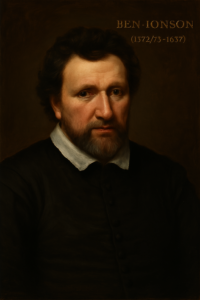SSLC English Question and Answer: The Noble Nature
Looking for SSLC English Studies textbook answers? You can download Chapter 4: The Noble Nature Questions and Answers PDF, Notes, and Summary here. SSLC English 3rd Language solutions follow the Karnataka State Board Syllabus, making it easier for students to revise and score higher in exams.
Karnataka SSLC 3rd Language English Textbook Answers—Reflections Poem 4
The Noble Nature Questions and Answers, Notes, and Summary
Class 10 3rd Language English Poem 4
The Noble Nature
Scroll Down to Download The Noble Nature PDF
Comprehension I: The Noble Nature
Question 1.
What does ‘It’ refer to in the poem?
Answer:
‘It’ refers to human life or the nature of being noble.
Question 2.
What is the life span of an oak tree?
Answer:
The life span of an oak tree is three hundred years.
Question 3.
What does the poet say about the tree?
Answer:
The poet says that the oak tree, despite living for three hundred years, eventually falls as a dry, bald, and lifeless log.
Question 4.
When does the lily look more beautiful?
Answer:
The lily looks more beautiful in the month of May.
Question 5.
Why is the lily called “the plant and flower of light?’’
Answer:
The lily is called “the plant and flower of light” because it is bright, pure, and beautiful, symbolizing fleeting beauty and purity.
Question 6.
According to the poet, when is life seen in perfection?
Answer:
According to the poet, life is seen in perfection when it is brief but beautiful, just like the short-lived lily.
Question 7.
How long did he live?Answer:
This question seems unrelated to the poem. If you are referring to the poet, Ben Jonson lived from 1572 to 1637, making his lifespan approximately 65 years.
Discuss in the class and answer the following questions: The Noble Nature
Question 1.
Do you like this poem? Give reasons.
Answer:
Yes, I like this poem because it conveys a meaningful message about the quality of life rather than its length. The poet beautifully uses the imagery of a short-lived but radiant lily to emphasize that a brief, meaningful life is better than a long, dull existence.
Question 2.
What do you learn from this poem?
Answer:
This poem teaches us that the true value of life lies in its beauty, purpose, and impact, not in its duration. It encourages us to live a noble and meaningful life, even if it is short.
Question 3.
Have you come across anybody who has achieved a lot in a short span of time? If so. mention their names and achievements.
Answer:
Yes, Swami Vivekananda is an example of someone who achieved a lot in a short span of time. Despite his brief life of 39 years, he spread the message of spirituality, universal brotherhood, and Indian philosophy across the world. His famous speech at the World Parliament of Religions in Chicago in 1893 is still remembered for its profound impact.
C. Write the summary of the poem. You can use the clues.
What makes a man noble. Poet compares _______ oak and _________ lily ________ Growing _________ bulky tree________ living long _______ does not make ________ The huge ________ oak soon become ________, ‘dry’ and withered _________ will be fate of _________blessedwith ________ material well being. The lily ________ blooms in May_________ Although the flower__________ falls and dies________, it spreads beauty and delight _________ The poet feels that a meaningful life ________ lily flower, is what makes a man noble ________ it can be a perfect life.
Answer:
The poet Ben Jonson conveys that what makes a man noble is not a long life but a meaningful one. He compares a bulky oak tree with a delicate lily. The oak tree, though it lives for three hundred years, eventually becomes dry, bald, and withered. This symbolizes that simply living a long life does not make a person noble.
On the other hand, the lily, which blooms in May, may live for only a day, but it spreads beauty and delight during its short existence. The poet uses the lily as a symbol of purity and light, showing that a brief but beautiful life is far more valuable. According to the poet, a meaningful and noble life, like that of the lily, is a perfect life, even if it is short.
D. Fill in the blanks with correct rhyming words from the poem. Then add one rhyming word of your own. If you need any help ask your teacher.
- night ———— ————
- year ———— ————
- be ———— ————
- day———— ————
Answer:
- night – light – bright
- year – sere – clear
- be – tree – free
- day – May – stay
About the Poet

Benjamin Johnson (1572/73-1637) was born at Westminster. He adopted the trade of his stepfather as a bricklayer, but this did not satisfy him and he became a soldier. From this he turned to acting and writing plays. He became a great English poet and playwright, He wrotepoetry and drama. His best-known plays are Volpone (1605), The Alchemist (1610), and Bartholomew Fair (1614).
